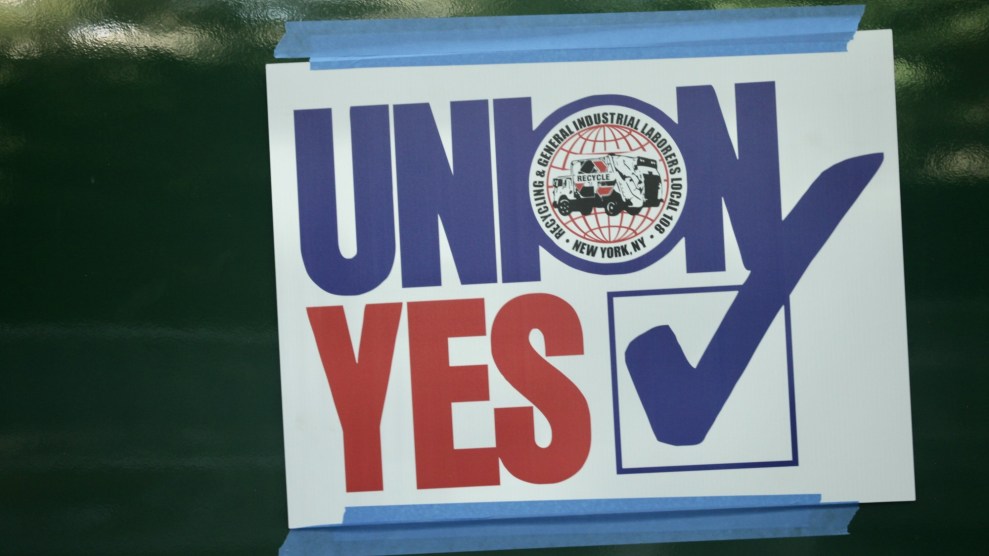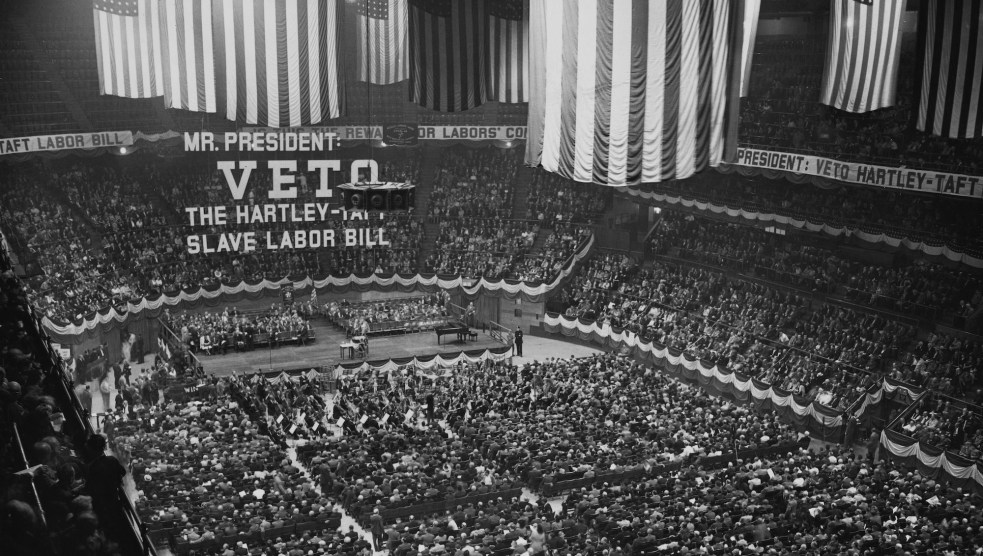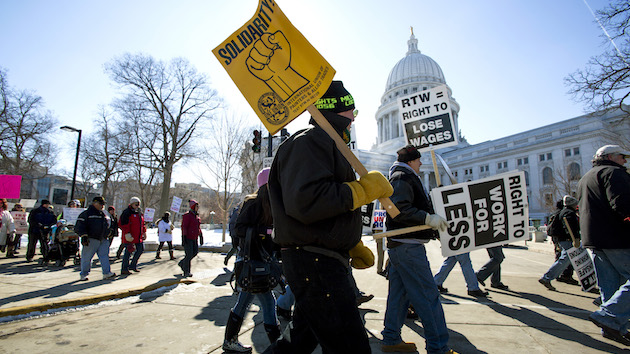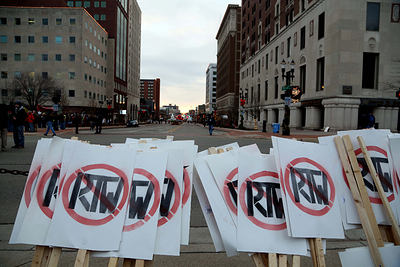
Zuma
Illinois workers are on the verge of a historic win: a labor rights amendment to the state constitution that—among other things—would make the state the first to ban so-called “right-to-work laws” throughout its territory. The amendment, on the ballot in Tuesday’s election, has to meet a high bar: either 60 percent approval (not counting blanks) or more than half of all ballots, even ones that skipped that question. With more than 95 percent of votes counted, unions across the state have already started to celebrate: the yes vote holds a 58 percent lead and looks set to win.
Amendment 1, also called the Workers’ Rights Amendment, makes collective bargaining a constitutional right that can’t be legislated or contracted away. It goes further than any state ever has in barring right-to-work laws—and any other legislation that “interferes with, negates, or diminishes the right of employees to organize and bargain collectively.” That mandate, and the bill’s wide support, are the high point so far of a pro-worker push under Democratic Gov. J.B. Pritzker, kicked off by the 2019 Collective Bargaining Freedom Act (which forbid legislation that interfered with union security agreements, where employers agree to require union membership or dues). Amendment 1 protects gains like those from conservative rollback attempts down the line.
Right-to-work laws allow employees in a union workplace to not join, not pay dues, but enjoy all the benefits of the union contract. That compels the rest of the employees to work, for free, on behalf of people who specifically don’t want to help or pay—with the idea of starving their funding and killing incentives to join. In right-to-work states, wages are lower across the board, union or not, there’s less employer-provided healthcare, and workers are poorer in retirement. They’re also considerably less safe: The Bureau of Labor Statistics reported in 2016 that the rate of workplace fatalities in states with right-to-work laws is 54 percent higher than in those without.
For the cherry on top, their history is also incredibly racist, as noted in 2012 by Dissent :
Southern conservatives feared that if unions united working-class whites and blacks, they could upend the politics of the South, where Jim Crow laws helped keep white and black workers on opposite sides of the political fence. They argued that unions could bring “black domination in the South”…
With President Truman also beginning to move forward on civil rights, southern segregationists ramped up their anti-union efforts. As the CIO began Operation Dixie, southern Democrats joined northern Republicans in voting for the 1947 Taft-Hartley legislation to cripple union organizing, in part by authorizing states to adopt right-to-work statutes.”
That anti-union legacy still permeates the country, particularly in the South, where almost all states make unions support so-called “free riders.” That makes the Illinois amendment even more significant. While Illinois would be the first state to forbid right-to-work, nine already enshrined right-to-work in their constitutions. On Tuesday, Tennessee voters made their state the tenth one.







